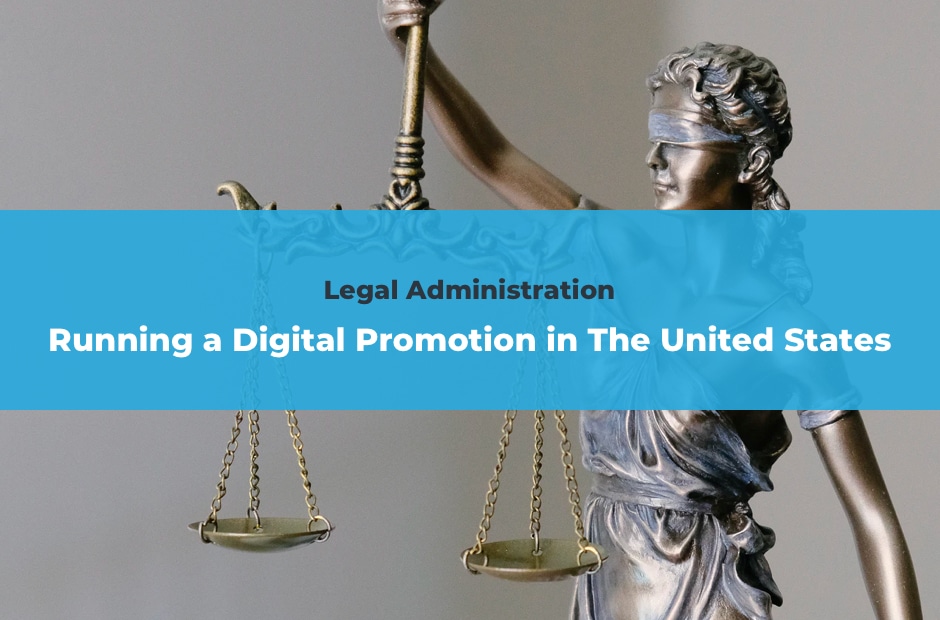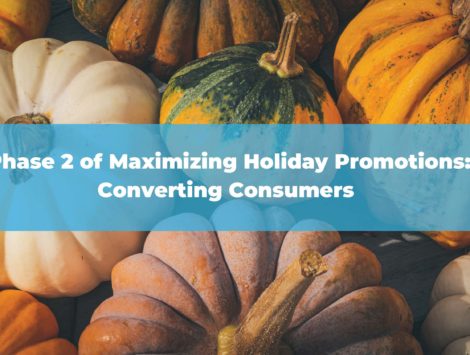Running Digital Promotions in the United States

Prize promotions require delicate management within the legal space of the United States. When preparing to run a contest, sweepstakes, or consumer rewards program, it’s important to comply with the many federal sweepstakes laws and regulations that exist to protect consumers.
In addition, many social media platforms have their own social media guidelines in place to protect their users and businesses. To help you navigate this space, we’ve pieced together an overview of all of these parameters that are required to run a legally sound and compliant promotion.
Please note that this guide is not a substitute for legal advice, however, our team offers legal administration services to ensure full compliance in running a legal contest or sweepstakes.
Giveaways, Sweepstakes, and Contest: Understanding Terminology
Typically, businesses can choose between running two types of promotions in the United States; Sweepstakes and Contests. It’s important to understand the distinction before diving into sweepstakes laws and contest laws.
Sweepstakes vs Contests – What’s the Difference?
The major difference between these two types of promotions is that sweepstakes are games of chance (based on luck) where prize winners are chosen randomly.
Contests are skill-based games, meaning winners are usually selected on merit. Contest winners can be selected based on performance, judges, voting, or any fulfillment of criteria.
What is a Giveaway?
Giveaways (or Instant Win games) technically operate as sweepstakes but usually have a deeper prize strategy that rewards a larger pool of entrants with smaller prizes.
The FTC and FCC: An Overview
The Federal Trade Commission (FTC) and Federal Communications Commission (FCC) are two governing bodies within the United States that regulate digital promotions. These two agencies will investigate any claims of malpractice within promotions such as sweepstakes and contests to protect American consumers. This includes advertising that may be misleading about a promotion.
Most FTC and FCC investigations regarding digital promotions deal with illegal lotteries. Illegal lotteries are any promotion that violates No Purchase Necessary laws.
What does “No Purchase Necessary” mean?
No Purchase Necessary is one of the most important laws to take into account when running sweepstakes or contest. Typically, this usually applies to scenarios where winners are selected randomly – such as running sweepstakes. This rule serves to protect the consumer from for-profit businesses, forbidding them from requiring consideration (defined below) to enter a promotion.
What is Consideration?
Consideration consists of two categories: Monetary and Non-monetary efforts.
Monetary involves requiring any payment/entry fee (including purchases) for entry to a promotion. Non-monetary is the requirement of any activity that may take substantial time or effort that benefits the business or sponsor in a direct way.
Contests and Consideration
There are exceptions to the No Purchase Necessary law. For example, if you run a contest where winners are selected on skill and/or merit of entry, you are free to ask for purchases and other forms of consideration.
This example is why running Contests provide an excellent opportunity to generate User Generated Content (UGC). With a contest, you are open to ask users to take actions that require effort, such as photos or videos that can be used in your brand story-telling. In addition, you can run contests that require a purchase, however, there are a small number of states that prohibit it.
Alternative Means of Entry (AMOE Definition)
Another way to permit promotions that require consideration or purchase is to include an Alternative Means of Entry (AMOE) or a free means of entry. An AMOE entry can include mail-in entries, phone calls, or email entries that provide information relevant to the official rules of the promotion.
In any promotion, an AMOE should be disclosed clearly so that entrants are well-informed that there is a free method of entering. In addition, entrants that opt for AMOE should have the same, equal chances of winning that paying entrants do.
State Laws
Depending on what states you plan to run your sweepstakes in, there are sometimes state-level laws that forbid certain promotion practices within their respective state. We’ve written a detailed guide on state by state promotions laws that have a brief overview of state-level practices. As always, we recommend consulting a promotions legal administrator.
Social Media Guidelines
Summary
In summary, when running a digital promotion such as a sweepstakes, contest, instant win game, or consumer rewards program, there are a lot of legal details to keep in mind. At Realtime Media we simplify the legal administration process so you can focus on your KPIs.
With in-house legal and a team of administration experts, we can take care of writing your official rules, Bonding & Registering, and handling your Alternate (Free) Means of Entry (AMOE). Take a few minutes to build your free quote today and learn how Realtime Media can help.






